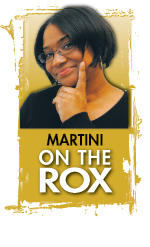Unless you’ve been under a rock, you have likely heard about America’s latest television obsession, FOX’s “Empire.” It’s a show about a family-owned record label that started with drug money. Sounds stereotypical, right? It is that storyline along with the heavily African-American cast that has some people giving it accolades and others giving it grief.
The main characters are played by Oscar nominees Taraji P. Henson as ex-drug dealer/ex-con/star maker Cookie Lyon and Terrence Howard as her ex-husband/music mogul Lucious Lyon.
The reunion of this epic duo from the 2005 movie “Hustle & Flow” makes this Wednesday night soap opera as dramatically entertaining as “Dallas” and “Dynasty” were in the 1980s. “Empire” adds the musical element that has proven successful for ABC’s nighttime drama “Nashville.” The talent of the main cast is showcased weekly along with guest stars like Courtney Love, Mary J. Blige and Estelle. Timbaland produces the music and FOX owns it all.
It truly is art imitating life. In the beginning, “Empire” was plagued by comparisons to 50 Cent’s show “Power,” which airs on Starz network. Two different shows that share hip-hop as their foundation.
The fact is that with the exception of a few major urban record labels, a number of black-owned recording “empires” started with drug money, from Master P’s No Limit Records, Slim and Birdman’s Cash Money Records to Jay Z’s Roc-A-Fella Records. It is common knowledge in black communities that owning our own labels has been the only way to be properly represented in the music industry.
Beyond the drugs and violence in “Empire,” there is also a gay main character. Controversy sells, and if the 14 million viewers and rising don’t convince you to binge watch on demand or tune in for season two, the much-talked-about first-season finale and all-star cast should.
Let’s face it: Urban programming is winning with shows like ABC’s hilarious “Fresh Off The Boat,’” featuring an Asian-American family, and “The Mindy Project,” which has one of the most culturally diverse casts on primetime television. It has been a long time coming, but there is finally enough urban programming on TV to love to hate and hate to love.
No longer are primarily African-American casts relegated to African-American networks or syndicated reruns from the 1970s, 1980s and 1990s. “Scandal,” “How to Get Away With Murder” and “Black-ish” are posting record numbers for ABC.
Choosing to watch positive or negative images on television is up to each viewer and I find it a bit self-righteous to tell people what to watch in their homes. Social media commentary on the trend seems split between discussion of the aforementioned programming and “show shaming” from those who are against “Empire” and reality TV content or feel left out of the conversations.
African-Americans are not the first group to disagree with their media representation. Asian- and Italian-Americans have felt the exaggeration and exploitation of their heritage for decades. I am happy we have more cultures and nationalities on America’s major networks. We should always demand better programming, but I would be remiss if I did not admit that I enjoy being a part of a range of cultural representation. Like it or not, this is America and everyone has their moment. It comes in waves and this happens to be a diverse wave, so let’s ride it out.
As we continue on …























